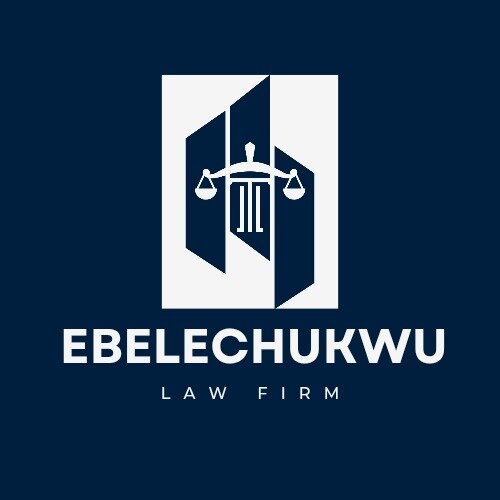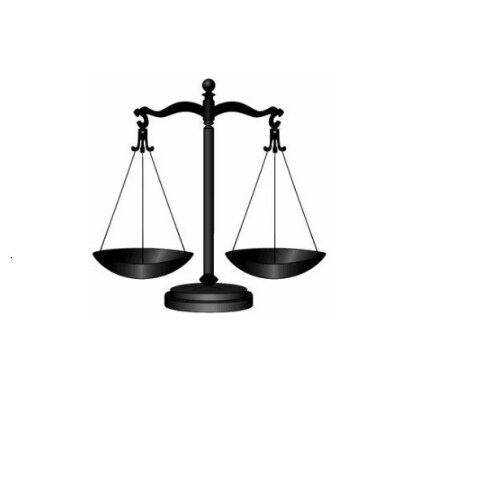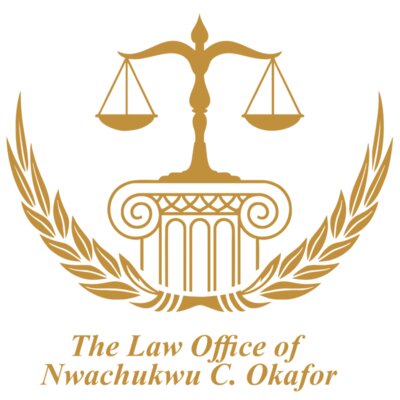Best Child Custody Lawyers in Nigeria
Share your needs with us, get contacted by law firms.
Free. Takes 2 min.
Free Guide to Hiring a Family Lawyer
Or refine your search by selecting a city:
List of the best lawyers in Nigeria
Nigeria Child Custody Legal Questions answered by Lawyers
Browse our 8 legal questions about Child Custody in Nigeria and read the lawyer answers, or ask your own questions for free.
- Under what circumstances can my narcissistic ex husband win sole custody of our daughter?
- I recently left my narcissistic husband. Thr marriage was conducted under customary law (traditional marriage) I was the third woman he married. He was separated from the first two wives before i married him. Our marriage lasted for three years and seven months. We have a daughter together and she's... Read more →
-
Lawyer answer by CO-dunni Law Solicitors
A man cannot get sole custody of child under 7 years of age no matter the gender. He can get sole custody if you are adjudge a bad mother or a person unfit to parent a child. Please talk to...
Read full answer - Pls l want the joint custody of my kids
- My kids had been denied access to communication and visits but l have no money to get a lawyer to pursue for joint custody, how do I go about it, lm residing in Portharcourt but they are in lmo state.
-
Lawyer answer by RI & Associates
I’m sorry to hear about the difficulties you’re facing. Here are a few steps you might consider to pursue joint custody without the need for immediate funds for a lawyer: Legal Aid Services: Look for organizations that provide free legal...
Read full answer - Child custody
- Am not married legally and traditionally to my husband, I gave birth to twins to his mum, and he maltreated me so I left his mum's house so he could come and pay my dowry and marry me legally, but I sense he wants to collect my kids from me... Read more →
-
Lawyer answer by CO-dunni Law Solicitors
If you are neither married to him Legally nor Traditionally as you said. Then the children belongs to you and not your husband.
Read full answer
About Child Custody Law in Nigeria
Child custody in Nigeria involves the legal guardianship of a child under the law as stipulated by the nation's legal frameworks. Custody proceedings may arise during divorce or separation, where the interests of the child are paramount. In Nigeria, both customary law and statutory law play roles in determining child custody, often considering factors such as the child’s welfare, parental circumstances, and cultural practices.
Why You May Need a Lawyer
Engaging a lawyer for child custody issues in Nigeria can be beneficial, especially in the following situations:
- Complex Custody Disputes: When parents cannot agree on custody arrangements, a lawyer can help mediate and represent your interests in court.
- Understanding Legal Rights: A lawyer can explain your custody rights under Nigerian law and ensure these rights are protected.
- Negotiating Agreements: Lawyers can assist in drafting and negotiating custody agreements that reflect both parental intentions and the child's best interests.
- Enforcement and Modification: If an existing custody order needs enforcement or modification, legal advice can be crucial to navigate these processes.
- Relocation Issues: If one parent wishes to relocate with the child, a lawyer's guidance may be required to manage or contest such actions within legal parameters.
Local Laws Overview
Child custody law in Nigeria is influenced by both customary practices and statutory law. Key aspects include:
- Best Interest Principle: Courts prioritize the child’s best interests when making custody determinations, which considers emotional, educational, and social factors.
- Types of Custody: Custody can be sole or joint, with potential differences in physical and legal custody arrangements.
- Consent Agreements: Courts may honor custody agreements between parents if they align with the child’s best interests.
- Jurisdiction: The jurisdiction for custody cases can depend on the specific legal framework under which the marriage was contracted, such as statutory marriage or customary law.
- Child Welfare Act: This law provides national guidelines on children's rights and welfare, influencing custody deliberations.
Frequently Asked Questions
What factors do courts consider when determining child custody?
The courts consider factors such as the child's age, health, special needs, education, each parent's ability to provide for the child, the child’s preference (if of sufficient age), and the emotional ties between parent and child.
Can fathers gain custody of children in Nigeria?
Yes, fathers can gain custody, particularly if it can be demonstrated that it serves the child’s best interests and welfare.
Is joint custody common in Nigeria?
Joint custody is possible, but the court must ascertain this arrangement benefits the child. Cooperation between parents is essential for joint custody to work effectively.
How do customary and statutory laws affect child custody?
Customary laws may lean toward cultural practices and kinship relations, while statutory laws focus on legal principles like the best interests of the child.
How can a custody order be changed?
A custody order can be modified through the court if there is a significant change in circumstances affecting the child's welfare.
What role does the child’s preference play in custody cases?
If the child is of sufficient maturity, their preference may be considered, but it is not the sole factor in determining custody.
What if parents cannot agree on a custody arrangement?
If parents cannot agree, the court will decide based on the child's best interests. Mediation is another option to reach an amicable solution.
Can a parent relocate with the child without the other's consent?
Relocation usually requires the consent of the other parent or a court order to ensure it is in the child’s best interests.
How can I enforce a custody order?
If a custody order is not being followed, legal action can be taken to enforce compliance, sometimes involving court intervention.
Do grandparents have custody rights?
In certain circumstances, grandparents can seek custody or visitation rights, particularly if they serve the child’s best interests.
Additional Resources
Consider reaching out to the following resources for further assistance:
- The Nigerian Bar Association: Offers legal resources and lawyer directories.
- The Ministry of Women Affairs and Social Development: Provides guidance on children’s welfare matters.
- Nigeria Legal Aid Council: Offers assistance to those unable to afford legal services.
- UNICEF Nigeria: Works on children's rights and may provide valuable research and guides.
Next Steps
If you are seeking legal assistance for child custody matters in Nigeria:
- Begin by consulting a qualified family lawyer who specializes in child custody.
- Gather all relevant documents, such as birth certificates, any existing custody orders, and records of correspondence with the other parent.
- Participate in mediation if recommended to explore amicable solutions.
- Prepare for court proceedings by understanding the legal requirements and processes involved.
- Keep the child’s best interests as the central focus of any legal actions taken.
Lawzana helps you find the best lawyers and law firms in Nigeria through a curated and pre-screened list of qualified legal professionals. Our platform offers rankings and detailed profiles of attorneys and law firms, allowing you to compare based on practice areas, including Child Custody, experience, and client feedback.
Each profile includes a description of the firm's areas of practice, client reviews, team members and partners, year of establishment, spoken languages, office locations, contact information, social media presence, and any published articles or resources. Most firms on our platform speak English and are experienced in both local and international legal matters.
Get a quote from top-rated law firms in Nigeria — quickly, securely, and without unnecessary hassle.
Disclaimer:
The information provided on this page is for general informational purposes only and does not constitute legal advice. While we strive to ensure the accuracy and relevance of the content, legal information may change over time, and interpretations of the law can vary. You should always consult with a qualified legal professional for advice specific to your situation.
We disclaim all liability for actions taken or not taken based on the content of this page. If you believe any information is incorrect or outdated, please contact us, and we will review and update it where appropriate.
Browse child custody law firms by city in Nigeria
Refine your search by selecting a city.

















